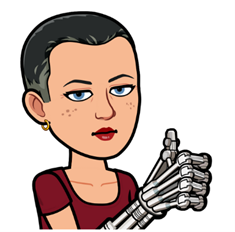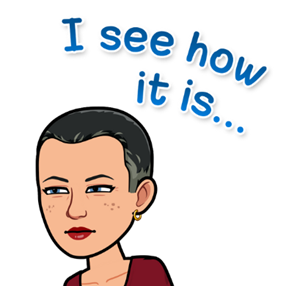TECHNICAL BUSINESS ANALYSTS AND DIGITAL BUSINESS ANALYSTS: “SAME SAME” OR DIFFERENT?
Technical Business Analyst (TBA)
What is a TBA?
 A Technical Business Analyst (TBA) is a professional who bridges the gap between business and technology. They are responsible for understanding the business needs of an organisation and translating those needs into technical requirements that can be implemented by developers. TBAs typically have a strong understanding of both business and technology, as well as the ability to communicate effectively with both groups.
A Technical Business Analyst (TBA) is a professional who bridges the gap between business and technology. They are responsible for understanding the business needs of an organisation and translating those needs into technical requirements that can be implemented by developers. TBAs typically have a strong understanding of both business and technology, as well as the ability to communicate effectively with both groups.
What skills should a TBA have?
The technical aspects of a TBA's role vary depending on the industry and the organisation they work for. However, some common technical skills that TBAs should have include:
- Software development methodologies
In addition to technical skills, TBAs also need to have strong communication and interpersonal skills. They need to be able to understand and articulate the needs of both business and technical stakeholders, and they need to be able to build relationships with both groups.
How does a TBA help a project to succeed?
TBAs play a critical role in the development of successful software projects. By understanding the business needs and translating those needs into technical requirements, TBAs can help ensure that projects are completed on time and within budget. They can also help to identify and mitigate risks, and they can help to ensure that projects meet the needs of all stakeholders.
What tasks might a TBA undertake?
Here are some of the specific tasks that a TBA may be responsible for:
- Gathering and documenting business requirements
- Analysing and prioritising requirements
- Developing technical specifications
- Working with developers to build and test software
- Evaluating and implementing new technologies
- Communicating with stakeholders
How can you prepare to become a TBA?
If you are interested in a career as a TBA, there are a few things you can do to prepare:
- Get a degree in computer science, information systems, or a related field.
- Gain experience in both business and technology.
- Develop your communication and interpersonal skills.
- Earn certifications in technical skills.
A career as a TBA can be challenging and rewarding. If you are interested in working in a field that combines business and technology, then this may be the perfect career for you.
Technologies to look out for
The technology that a TBA should be aware of will vary depending on the industry and the organisation they work for. However, some common technologies that TBAs should have a basic understanding of include:
- Programming languages: TBAs should be familiar with at least one programming language, such as Python, Java, or C++.
- Databases: TBAs should be familiar with at least one database, such as MySQL, Oracle, or SQL Server.
- Software development methodologies: TBAs should be familiar with at least one software development methodology, such as Agile or Waterfall.
- System architecture: TBAs should have a basic understanding of system architecture, including how different components of a system interact with each other.
- Networking: TBAs should have a basic understanding of networking, including how different devices connect to each other and how data is transmitted over networks.
- Security: TBAs should have a basic understanding of security, including how to protect systems and data from unauthorised access.
Digital Business Analyst (DBA)
What is a DBA?
 A digital business analyst (DBA), just like a TBA, is a professional who bridges the gap between business and technology. And, just like a TBA, they are responsible for understanding the business needs of an organisation and translating those needs into digital solutions that can be implemented by developers. DBAs typically have a strong understanding of both business and technology, as well as the ability to communicate effectively with both groups.
A digital business analyst (DBA), just like a TBA, is a professional who bridges the gap between business and technology. And, just like a TBA, they are responsible for understanding the business needs of an organisation and translating those needs into digital solutions that can be implemented by developers. DBAs typically have a strong understanding of both business and technology, as well as the ability to communicate effectively with both groups.
The "digital" aspect of a DBA's role refers to their focus on using technology to solve business problems. This includes understanding the latest digital trends, technologies, and tools, and how they can be used to improve business processes, increase customer engagement, and drive revenue.
What skills should a DBA have?
 Here are some of the skills that a DBA needs to have:
Here are some of the skills that a DBA needs to have:
- Strong analytical and problem-solving skills
- Excellent communication and interpersonal skills
- The ability to work independently and as part of a team
- The ability to learn new technologies quickly
- The ability to think creatively and come up with innovative solutions
If you have these skills, then you may be a good fit for a career as a DBA.
How does a DBA help a project to succeed?
DBAs play a critical role in helping organisations to succeed in the digital age. By understanding the business needs and translating those needs into digital solutions, DBAs can help organisations to:
- Improve customer experience
What tasks might a DBA undertake?
Here are some of the specific tasks that a DBA may be responsible for:
- Gathering and documenting business requirements
- Analysing and prioritising requirements
- Developing technical specifications
- Working with developers to build and test digital solutions
- Evaluating and implementing new technologies
- Communicating with stakeholders
How can you prepare to become a DBA?
If you are interested in a career as a DBA, there are a few things you can do to prepare:
- Get a degree in computer science, information systems, or a related field.
- Gain experience in both business and technology.
- Develop your communication and interpersonal skills.
- Earn certifications in digital skills.
A career as a DBA can be challenging and rewarding. If you are interested in working in a field that combines business and technology, then this may be the perfect career for you.
Digital developments to look out for
 There are many recent developments that DBAs should be aware of. Some of the most important include:
There are many recent developments that DBAs should be aware of. Some of the most important include:
Artificial intelligence (AI): AI is rapidly becoming a mainstream technology, and it is being used in a wide variety of applications, from customer service to fraud detection. DBAs need to be aware of how AI can be used to improve business processes and deliver better customer experiences.
Blockchain: Blockchain is a distributed ledger technology that is used to record transactions in a secure and transparent way. It is being used in a variety of applications, including supply chain management, financial services, and healthcare. DBAs need to be aware of how blockchain can be used to improve the efficiency and security of business processes.
Cloud computing: Cloud computing is a delivery model for IT services that allows businesses to access computing resources, such as servers, storage, and applications, on demand. It is becoming increasingly popular as businesses look for ways to reduce costs and improve agility. DBAs need to be aware of how cloud computing can be used to support business needs.
Cybersecurity: Cybersecurity is a critical issue for businesses of all sizes. DBAs need to be aware of the latest cybersecurity threats and how to protect their organisations from them.
The Internet of Things (IoT): The IoT is a network of physical devices that are connected to the internet and can collect and exchange data. It is being used in a variety of applications, such as smart homes, industrial automation, and transportation. DBAs need to be aware of how the IoT can be used to improve business operations.
These are just a few of the recent technology developments that DBAs should be aware of. By staying up-to-date on the latest trends, DBAs can help their organisations to take advantage of the opportunities that technology offers.
TBA and DBA: Compare and Contrast
 Technical business analysts and digital business analysts are both professionals who bridge the gap between business and technology. They are responsible for understanding the business needs of an organisation and translating those needs into technical requirements that can be implemented by developers. However, there are some key differences between the two roles.
Technical business analysts and digital business analysts are both professionals who bridge the gap between business and technology. They are responsible for understanding the business needs of an organisation and translating those needs into technical requirements that can be implemented by developers. However, there are some key differences between the two roles.
Similarities
- Both technical business analysts and digital business analysts need to have a strong understanding of both business and technology.
- Both roles require strong communication and interpersonal skills.
- Both roles play a critical role in the development of successful software projects.
Differences
- Technical business analysts typically have a more in-depth understanding of technical aspects, such as programming languages, databases, and software development methodologies.
- Digital business analysts typically have a more in-depth understanding of the latest digital trends, technologies, and tools.
- Technical business analysts are typically more focused on the development of new software systems.
- Digital business analysts are typically more focused on the improvement of existing business processes and the development of new digital products and services.
In general, technical business analysts are more focused on the technical aspects of software development, while digital business analysts are more focused on the business and user-facing aspects of software development.
Here is a table that summarises the similarities and differences between technical business analysts and digital business analysts:
| Feature |
Technical Business Analyst |
Digital Business Analyst |
| Role |
Bridges the gap between business and technology |
Bridges the gap between business and technology |
| Responsibilities |
Understands business needs and translates them into technical requirements |
Understands business needs and translates them into digital solutions |
| Skills |
Strong understanding of business and technology |
Strong understanding of business, technology, and digital trends |
| Focus |
Development of new software systems |
Improvement of existing business processes and development of new digital products and services |
Which role should you choose?
 Ultimately, the role that is right for you will depend on your interests and skills:
Ultimately, the role that is right for you will depend on your interests and skills:
- If you are interested in working in a technical role and have a strong understanding of programming languages, databases, and software development methodologies, then a technical business analyst role may be a good fit for you.
- If you are interested in working in a role that focuses on the business and user-facing aspects of software development and have a strong understanding of business, technology, and digital trends, then a digital business analyst role may be a good fit for you.
 Author: Genesis Buckley
Author: Genesis Buckley
Genesis Buckley is a CBAP-holding, work-from-home-loving, Irish Kiwi living in New Zealand. She has been working as a business analyst since 2008. You can contact her at [email protected]